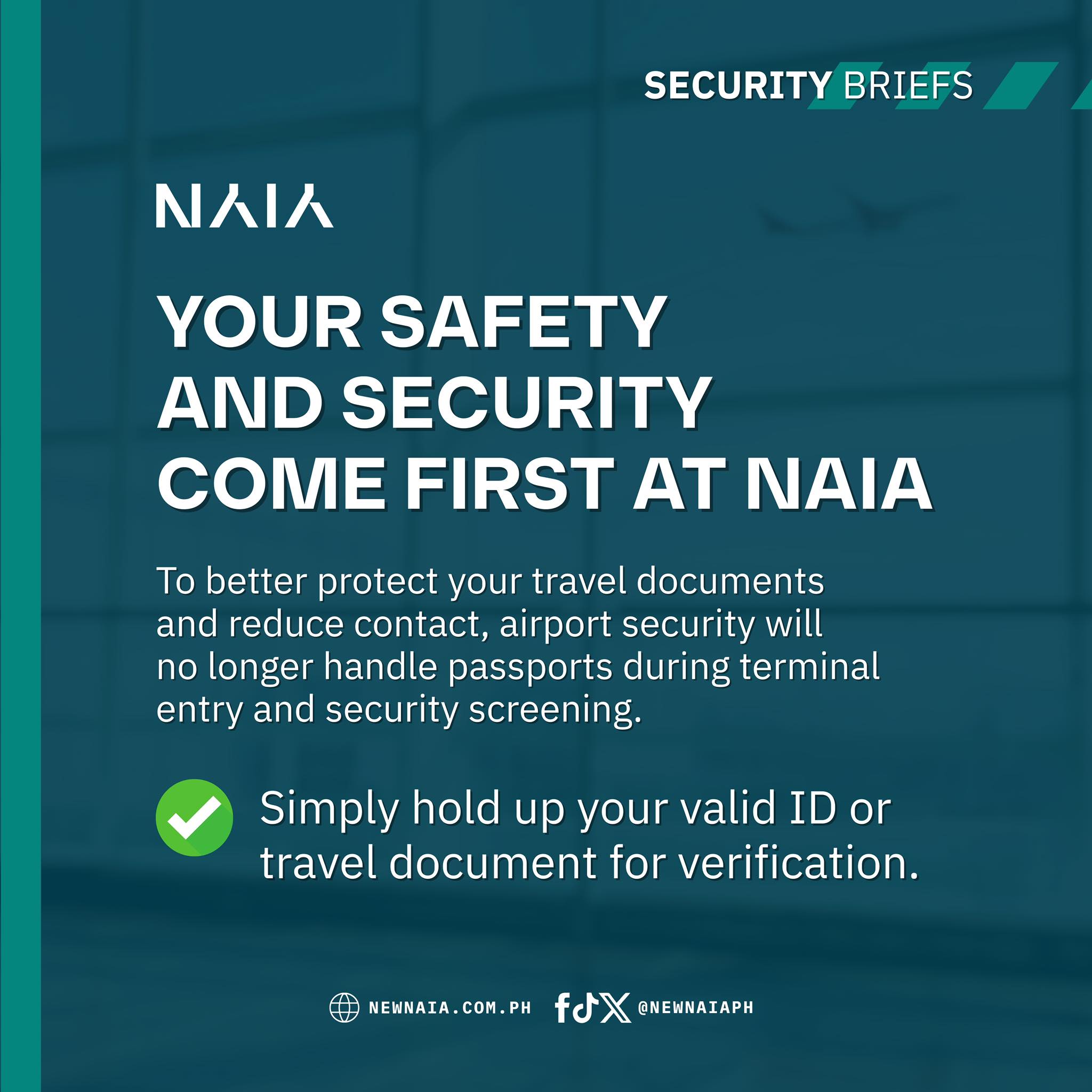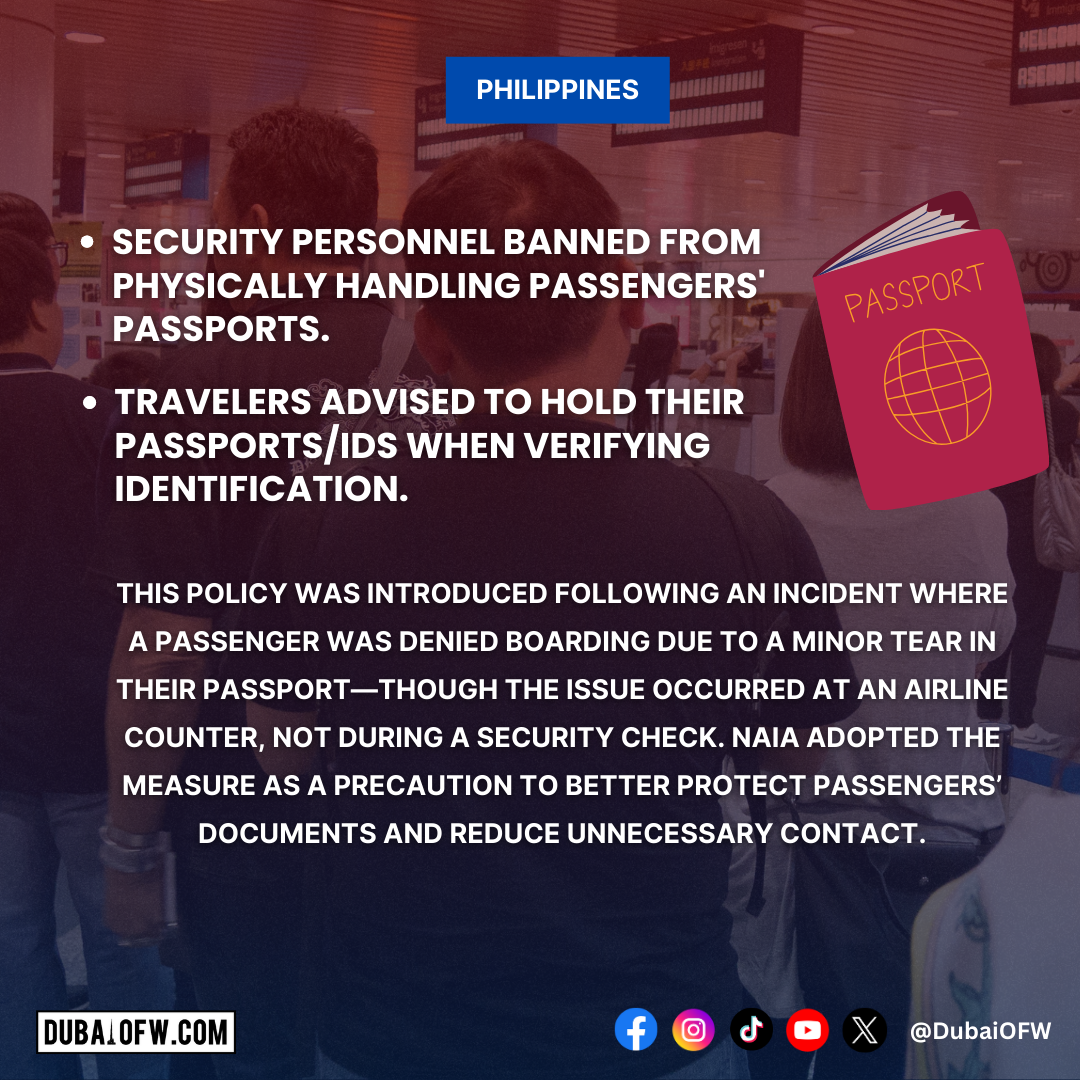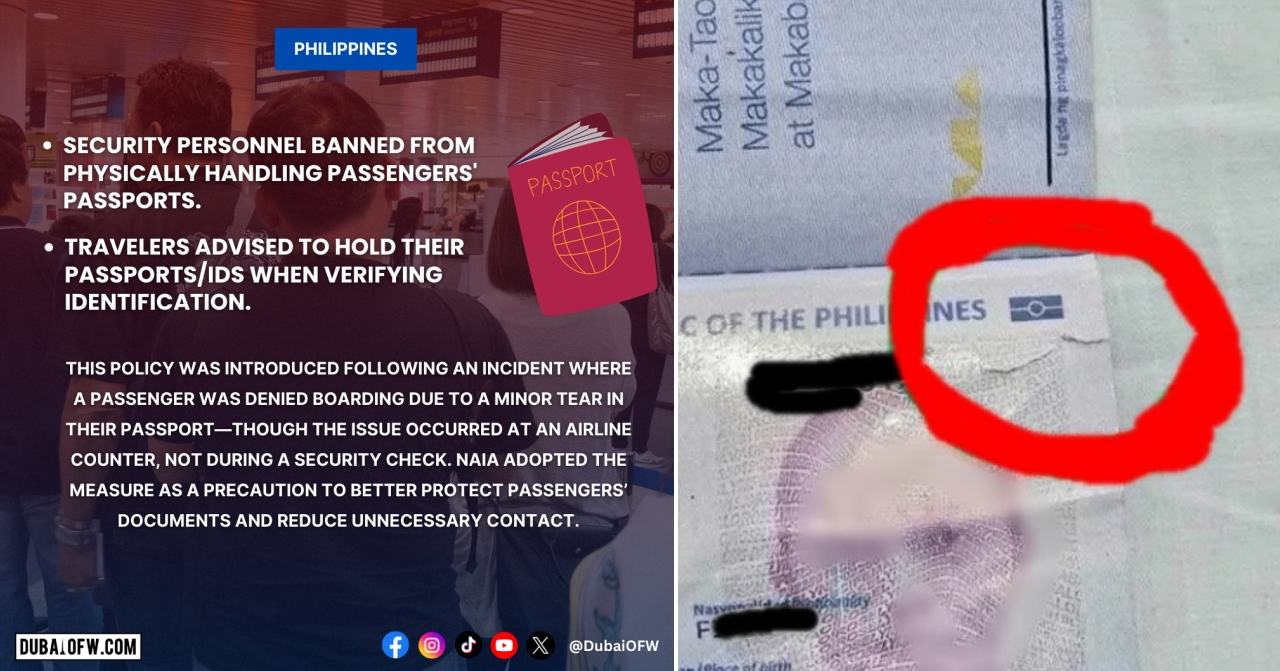Filipinos traveling abroad can now breathe a little easier when passing through Philippine airports. A new policy has been put in place that prohibits airport security personnel from physically handling passengers’ passports. This move, aimed at protecting valuable travel documents, is a proactive response to the growing issue of “punit passports” or damaged passports, which have caused unnecessary travel woes for many.
Contents
What is the ‘Punit Passport’ Issue?
The term “punit passport” has gained attention due to reports of travelers being denied boarding because their passports were slightly torn or otherwise damaged. One notable case involved a passenger who missed a flight because airline staff deemed a small tear on his passport enough to disqualify him from traveling. These incidents caused frustration and highlighted the need for better care of travel documents.
Frequent complaints from travelers have revealed that damaged passports, whether from mishandling or wear-and-tear, have significant consequences. It not only affects travel plans but may also lead to costly and time-consuming renewals.
A Step Towards Protection
To address this, officials at the Ninoy Aquino International Airport (NAIA) have announced a simple yet effective change. Security personnel will no longer touch passports during the initial screening. Instead, travelers will be asked to display their passports to security by holding them up for visual inspection.
This adjustment aims to significantly reduce unnecessary contact, mitigating risks of accidental tearing or mishandling. It also aligns with broader efforts to ensure smoother and safer airport processes.
Below is the full statement as shared on the official Facebook page of New NAIA PH dated April 29, 2025:
Advisory for All NAIA Passengers
To better protect your travel documents and reduce unnecessary contact, all NAIA security personnel have been instructed not to touch passports during terminal entry and security verification. Passengers will simply be asked to show their valid ID or travel document by holding it up themselves.
The recent incident involving a torn passport occurred at an airline check-in counter at NAIA Terminal 3. There has been no report of any mishandling involving NAIA security personnel.
As the airport operator, and in the spirit of teamwork with all stakeholders, we continue to take proactive measures to ensure the safety and security of all passengers.
We are working closely with our airline partners, the Department of Transportation (DOTr), and the Bureau of Immigration (BI) to strengthen procedures and make sure incidents like this do not happen again.

Collaborative Efforts from Authorities
Airport officials aren’t stopping there. The Department of Transportation (DOTr), the Civil Aeronautics Board (CAB), and other agencies are actively working with airlines to prevent similar situations from happening in the future. They are revisiting policies to ensure that minor issues with travel documents don’t automatically lead to denied boarding, provided there is no tampering or fraud involved.
Tips for OFWs and Travelers
For Overseas Filipino Workers (OFWs), who often travel internationally, this new policy offers reassurance. However, it’s still vital to take precautions. Always check the condition of your passport before traveling. If you notice any damage, have it repaired or replaced early to avoid complications.
This new measure is a testament to the government’s commitment to improving passenger experience. With better and stricter policies, OFWs and all travelers can focus more on their journeys instead of worrying about their documents.

